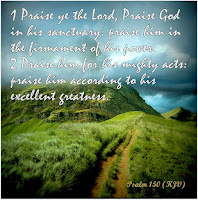Note: All devotional posts from the Gospel of Mark that were originally found here from September 2013 through March 2014, have been updated during the Covid-19 crisis of 2020-21 and moved to a new Blog... https://thedragnetgospel.blogspot.com/
In the New Testament of the Bible, there are four Gospels (Matthew, Mark, Luke, and John) which detail important events and teachings from the life of Jesus Christ. They each have their own style, flavor, and structure which adds to their credibility as eyewitnesses. Part of the reason for these different styles, besides being written by different people, is that each was written with a different audience in mind. Mark is believed to have been written for the Church in ancient Rome. Since the Romans were doers, they could appreciate an active Savior. I hope we can as well.
The Gospel according to Mark is distinctly a gospel of action (the word "immediately" is used 35 times), with Jesus showing us who he is by what he does. If we are going to be honest with him, we need to come to him with a trust that is aided by having seen him at work in this world.
I have also referred to Mark as the “Dragnet Gospel” after the tendency of the old TV detective (Sgt. Friday) to say when interviewing talkative witnesses to a crime, “Just the facts Ma’am, just the facts.” Mark’s simple and straightforward approach sticks to the facts of an eyewitness’ testimony. Who was that eyewitness? Mark is believed to be the gospel presented to the Romans by the apostle Peter before he died. These teachings were then written down by John Mark.
Today, if we want to know if we want to get to know someone better, we watch their lives from a distance, observing how they treat others, seeing if they would be a good influence on our lives. Even employers now examine their potential employees' social media feeds. When it comes to knowing and following Jesus, many people tout the Gospel of John as a starting point, but I disagree. John makes much more sense to the reader if they have already read Mark. Mark lets you watch Jesus' life by showing him doing stuff. If in reading Mark you get to see Jesus being a "good shepherd" in many different ways, then in John when Jesus tells you that he is the "Good Shepherd" it will make much more sense.
 |
| Sunrise over the Sea of Galilee |
The Gospel according to Mark is distinctly a gospel of action (the word "immediately" is used 35 times), with Jesus showing us who he is by what he does. If we are going to be honest with him, we need to come to him with a trust that is aided by having seen him at work in this world.
I have also referred to Mark as the “Dragnet Gospel” after the tendency of the old TV detective (Sgt. Friday) to say when interviewing talkative witnesses to a crime, “Just the facts Ma’am, just the facts.” Mark’s simple and straightforward approach sticks to the facts of an eyewitness’ testimony. Who was that eyewitness? Mark is believed to be the gospel presented to the Romans by the apostle Peter before he died. These teachings were then written down by John Mark.
Today, if we want to know if we want to get to know someone better, we watch their lives from a distance, observing how they treat others, seeing if they would be a good influence on our lives. Even employers now examine their potential employees' social media feeds. When it comes to knowing and following Jesus, many people tout the Gospel of John as a starting point, but I disagree. John makes much more sense to the reader if they have already read Mark. Mark lets you watch Jesus' life by showing him doing stuff. If in reading Mark you get to see Jesus being a "good shepherd" in many different ways, then in John when Jesus tells you that he is the "Good Shepherd" it will make much more sense.
[As noted above, you can follow the journey through the Gospel of Mark a new Blog... https://thedragnetgospel.blogspot.com/]

















.png)


